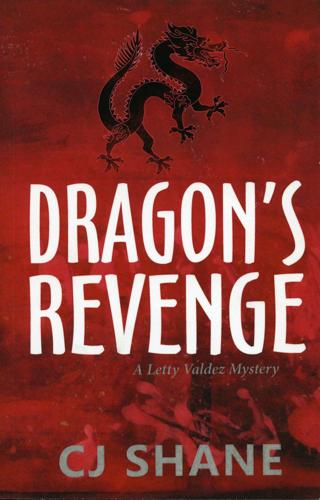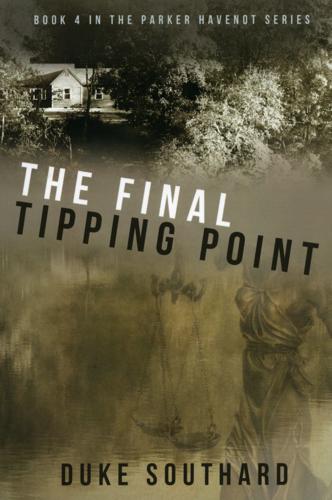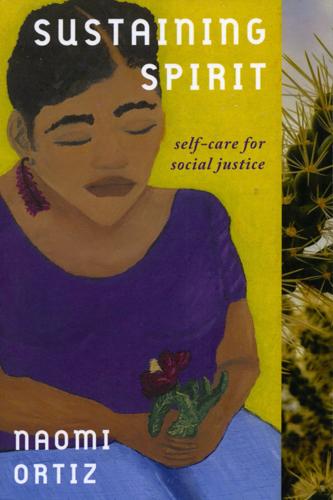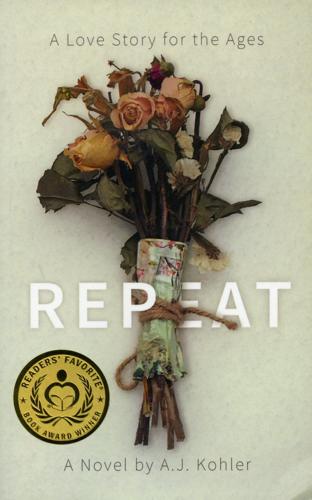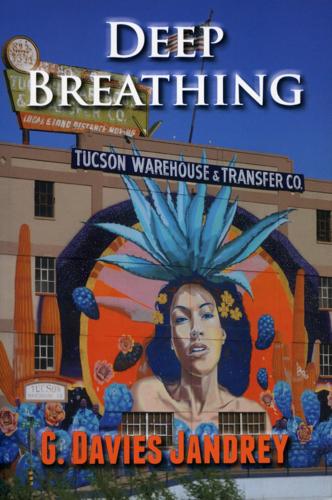“Dragon’s Revenge: A Letty Valdez Mystery”
By C.J. Shane. Rope’s End Publishing. Hardcover $22.99; paperback $12.99; Kindle $3.99
There’s a good chance that a book that begins with a dead body in a library will conjure up visions of Agatha Christie for a lot of mystery buffs — but “Dragon’s Revenge” is far from being a cozy whodunit. The scene of the crime — the quietly studious Sonoran Arts and Sciences Institute at the University of Arizona Special Collections Library — is an intriguing setting for a coldblooded murder. But events take a decidedly un-Miss Marple-like turn when Iraq War-veteran-turned-private-investigator Letty Valdez intercepts a century-old Tucson memoir intended for the library and becomes the target of violent criminals. Employing a “story within the story” motif, the author employs the memoir to re-create the lively Tucson barrio neighborhood of years gone by, filled with life, love and implications for present-day mayhem. This is the second outing for C.J. Shane’s statuesque, half-Mexican, half-Native American PI, with her coterie of extended family and appealing friends, including a spiky-haired librarian, a martial-arts instructor, and a “sniffer” Labrador retriever. Tucson readers will enjoy the local setting filled with familiar landmarks, ranging from the St. Augustine Church, out to the Tohono O’odham Reservation, and up Swan Road to the Catalina Foothills. Former journalist and academic reference librarian C.J. Shane is the author of 10 books. She lives in Tucson.
— Helene Woodhams
“The Final Tipping Point”
By Duke Southard. Wheatmark, Inc. $8.15 paperback; $6.99 Kindle
Justice isn’t necessarily blind, but sometimes it’s pretty myopic. That’s what Detective Parker Havenot discovers when the murderer he helped put away is paroled for good behavior, just five years into an unreasonably lenient 20-year sentence. The killer, Alex Prohl, is a long-haul truck driver and part-time criminal with a curiously amoral outlook on life. He is bitterly resentful about having been incarcerated for a murder he was hired to commit (he was just doing the job he was paid to do, he reasons, and is therefore blameless). Adding insult to (perceived) injury, his imprisonment upset his mother so deeply that it was, quite literally, the death of her. Someone will have to answer for that, too, Prohl decides, and that someone is Detective Havenot. Havenot didn’t get his reputation as a first-rate investigator for nothing — he’s picking up signs everywhere that Prohl is on the move. Unfortunately, his breathtakingly clueless colleagues in Connecticut’s criminal-justice system insist the miscreant is completely rehabilitated. They view Havenot’s concern for the safety of his three adopted kids (orphaned when Prohl murdered their mother) as overly anxious and unwarranted, until Prohl proves that the detective’s fears were justified. The disappearance of his son triggers a race against time as Havenot tries to prevent yet another murder.
This is the fourth in the Parker Havenot series, written by Duke Southard, a retired educator and award-winning author who lives in Green Valley.
— Helene Woodhams
“Sustaining Spirit: Self-Care for Social Justice”
By Naomi Ortiz (Reclamation Press). $16.95 paperback; $7.95 Kindle
Social justice activism can be exhausting: It’s physically and psychologically enervating to call out injustice, agitate and argue for reform, patiently support victims, even negotiate tactics among other activists. Tucson facilitator, writer, and visual artist Naomi Ortiz draws upon her own experience to suggest ways in which activists can care for themselves as they care for others.
A member of a number of minority groups (disabled, Mestiza—Latina/ indigenous/ white “raised in Latinx culture”), Ortiz has perspective from the “multiple worlds” of her subcultures. Framing the book with chapters on Grandfather Sun and Grandmother Moon, and dividing it into sections representing the four elements of Earth, Fire, Water and Air, Ortiz identifies causes of exhaustion and frustration common among social activists, and offers strategies to address them.
— Christine Wald-Hopkins
“Repeat: A Love Story for the Ages”
By A.J. Kohler (Lang Book Publishing). $19.99 paperback; $3.99 Kindle
So, it seems that attorney, salesman, soldier, tax collector, and now Southern Arizona writer A.J. Kohler was once in discussion with an old college friend. What would it be like, they wondered, if they could do a life reboot: What would they do differently if they could return to a point in their past and make decisions informed by their knowledge of history and the wisdom and experiences of their mature selves? The result was this novel.
In “Repeat,” when 60-something Angelina is killed in an accident, she is given two options: she could enter the afterlife, or she could do a life redo. With the caveats that she be joined by former boyfriend Paul and that they both remember their previous lives, she chooses the redo. Thus they find themselves 1966 college freshmen again and immediately fall in love.
In addition to exploring themes of life choices and maturity, Kohler revisits issues regarding the Vietnam War in this novel. Out of honor and patriotism, Paul joins the army and becomes a helicopter pilot (the book is dedicated to Kohler’s helicopter company). While he’s away, Angelina becomes a romance novelist — writing books presumably not unlike this one.
— Christine Wald-Hopkins
“Deep Breathing”
By G. Davies Jandrey (Fireship Press). $18 paperback; $7.95 Kindle
Looming over the action in J. Davies Jandrey’s latest Tucson-set novel is the mural on the Tucson Warehouse and Transfer building on East Sixth Street. Against a cactus background, a sultry dark-haired beauty gazes out, her heavy-lidded eyes and parted lips denoting either sensuality or disdain, but not compassion. The mural shows up throughout the book, so it’s not hard to see it resonating symbolically — a higher power, perhaps, imperiously indifferent to the plights of those below. And the characters in “Deep Breathing” have more than their share of plights
Point-of-view character Abby Bannister, a wheelchair user with a twisted spine, is CEO of a nonprofit (Gimps Serving Gimps) that assists the disabled. Her life-long friend Robert — gay, stricken with a neurological disease — also uses a wheelchair. When Abby gives a television interview featuring Gimps Serving Gimps, she captures the attention of two more damaged individuals: her long-lost Cousin Fey, homeless and drug-addicted; and an unnamed self-appointed Angel of Death for the disabled. As Abby and Robert search for suitable romantic relationships, Fey struggles to rehabilitate herself to regain the custody of her young son, and “gimps” (Abby’s word) show up dead, the “Angel of Death” trains his focus on Abby.
Jandrey makes good use of the Fourth Avenue/ Sixth Street neighborhood for this novel. Its sidewalks, access to public transportation, and modest housing lend credibility and vulnerability to Abby’s situation. She convincingly portrays the mechanics of homelessness — from shelter rules and the protocol at the blood bank, to tent city etiquette — and creates effective suspense. Most successful, however, in “Deep Breathing” is Jandrey’s depiction of the physically disabled not as victims, but as independent agents of their own destinies. (God, by the way, doesn’t come off so well in this novel. It’s the “voice” of God that inspires the murderer.) Abby might as well pray to the indifferent warehouse mural lady for all the good prayer would do her. She’s heroic on her own.
Jandrey’s depiction of society’s marginalized continues to be sympathetic and informed. Her prose is increasingly nuanced. This reader, for one, would welcome more Abby & Co.
— Christine Wald-Hopkins


